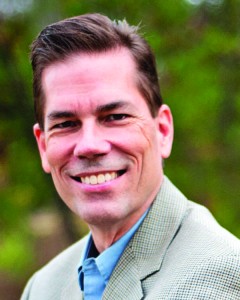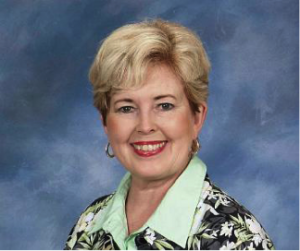
by Steve | Mar 20, 2017 | Magazine, Magazine Articles, March-April 2017

By Thomas Lambrecht-
I approached my first meeting as a member of the Bishops’ Commission on a Way Forward for the Church with trepidation, if not fear and trembling. The commission has an enormous and consequential task ahead of it — find a way forward to resolving the impasse between progressives and traditionalists over the church’s stance toward lesbian, gay, bisexual, and transgender people. It was somewhat gratifying that nearly every other commissioner shared the same sense of the overwhelming challenge we face, yet remained open to the leading of the Holy Spirit to find that elusive path between the proverbial rock and hard place.
That sober, yet hopeful, attitude characterized our first meeting last month in Atlanta, Georgia. The commission is capably led by the commission’s moderators: Bishops Ken Carter, Sandra Steiner-Ball, and David Yemba, along with their staff resource person Gil Rendle. They crafted a productive agenda and we moved into work mode, as we discussed the outcomes we want to see from our work and began to sketch out what we will need to learn in order to achieve those outcomes. Small-group processes enabled us to both hear everyone’s voice and get to know each other more deeply a few at a time. The moderators adjusted the agenda and topics to address the needs and desires of the commission. Their goal really is to serve the commission and help our work to be effective.
With members from four continents, several ethnic groups, and a wide range of ages, theological perspectives, and multiple sexual orientations, the commission is indeed the most diverse body assembled in the church, other than General Conference itself. That is an appropriate reality, considering that our denomination experiences diverse realities, such as precipitous decline in parts of the United States and rapid growth in parts of The Philippines and Africa.
It will be a challenge for such a diverse group to come to agreement on a resolution of our crisis that allows us to move forward as a church. Strongly held, diametrically opposite views on essential matters will make consensus difficult. So far, the group is approaching the disagreements with goodwill and a desire to understand. As personal emotional investment comes to the surface, that goodwill will be tested, and the commission will continue to need the church’s prayers for a constructive relationship in the group that can lead to resolution. At the same time, from the beginning, the commissioners have acknowledged our need to settle on an approach that can pass General Conference. Members’ idealism will need to be tempered by pragmatism.
One commissioner recently wrote, “The Commission is not exploring ‘whether’ LGBTQ persons will be fully-included in the life of The UMC, but ‘how’” we include them.” Yet allowing same-sex marriage and the ordination of practicing homosexuals in some parts of The UM Church would violate the consciences of many traditionalists and be unacceptable. A variety of different approaches will be on the table. These are the kind of pragmatic realities that the commission will be wrestling with.
The commission is just beginning its work and has a lot of ground to cover, as we examine such things as the theological foundations of our unity and identity as global United Methodists and discover how other denominations have navigated the same challenge we face. While these issues take the forefront of our attention, we are also mindful of the worsening decline of membership and worship attendance in United Methodism in the U.S. and our need to provide a way for the revitalization of our church in making disciples of Jesus Christ for the transformation of the world. We face a tall challenge, and only the grace of God and the prayers of our church will enable us to work our way to a successful outcome.
Thomas Lambrecht is a United Methodist clergy person and the vice president of Good News.
![What Counts as Wesleyan Orthodoxy?]()
by Steve | Mar 20, 2017 | Magazine, Magazine Articles, March-April 2017

Original art created for Good News by Anton Tonchev.
By Heather Hahn-
A friend’s invitation to preach outdoors had John Wesley worried: Could such sermonizing be a sin? While his concern might seem strange today, it made perfect sense in 18th-century England.
Less than a century earlier, Puritans had used field preaching to inflame the people who overthrew the country’s Anglican elite in England’s bloody civil war. By Wesley’s day, many Church of England dioceses had banned the practice.
Going outside church walls to save souls, even with peaceful intent, seemed rebellious and dangerous — certainly not something a respectable Anglican priest like Wesley should do. But after reflecting on Jesus’ Sermon on the Mount, Wesley determined outdoor preaching would put him in good company.
“I submitted ‘to be more vile’ and proclaimed in the highways the glad tidings of salvation,” Wesley wrote in his journal April 2, 1739. That day, he preached to 3,000 people about Luke 4:18-19.
Field preaching became a key way that Wesley and others in his nascent movement preached “good news to the poor” and promoted Christian revival. He and other Methodist preachers even sometimes braved rocks thrown at them by angry villagers to share their gospel message.
Wesley was fully on board with Christian orthodoxy — that is, core Christian doctrines such as the Trinity and Christ’s resurrection. Where he differed from many fellow Anglicans was in his willingness to be “vile” and defy the conventions of his church to do what he saw as God’s will.
Today, as Wesley’s United Methodist followers wrestle with differences around homosexuality and biblical interpretation, an attendant debate has developed around who in the denomination are the true heirs of the Wesleyan way.
The truth is United Methodists across the theological spectrum have found much to admire about the reformer who both challenged his day’s limitations in ministry and held fast to traditional Christian teaching, even warning against “half-Christians.”
For Methodism’s founder, say Wesleyan scholars, orthodoxy was just the beginning of a faithful life.
“It’s not just about saying the creed — although that’s important — it’s about having an experiential faith,” said Ryan Danker, a Methodist studies professor at United Methodist Wesley Theological Seminary in Washington. He recently published Wesley and the Anglicans: Political Division in Early Evangelicalism.
“It’s about having a living, vital relationship with the God whom orthodoxy describes. With Wesley, the faith can never be static; it has to be dynamic.”
The creeds and Wesley
For as long as people have sought to follow Christ, they have argued about what that entails. For much of the early church, going back to Acts of the Apostles, people struggled with simply defining the basics of Christianity.
By the fourth century, a sort of consensus developed with the use of creeds. These included the Nicene Creed and the much shorter Apostles’ Creed, first used as a faith outline for Christian converts to recite during baptisms at Easter. Incidentally, the fourth century (367 A.D.) also marks the first declaration urging the New Testament books be restricted to what we use today. Athanasius is the church father credited with developing the teachings in the Athanasian Creed, first on the scene in late fifth century, and helping to establish the canon.
When many Christians talk about Christian orthodoxy, it’s usually the ecumenical creeds they have in mind. Even the creeds didn’t entirely settle matters. By the 11th century, the pope had officially changed the widely used Nicene Creed to add the phrase “filioque,” Latin for “and the Son.” The change meant western Christians now declared the Holy Spirit “proceeds from the Father and the Son.”
Christian leaders in the East objected, and that friction contributed to Christianity’s first “Great Schism” in 1054 between the Catholic and Eastern Orthodox Church.
Wesley had his own issues with the creeds. Later in life, when he edited the Anglican Church’s 39 Articles to form Methodism’s Articles of Religion, Wesley excluded the Anglican Church’s Article VIII, which promoted the three creeds.
Nevertheless, he did include the Apostles’ Creed as part of the Methodist daily prayers and the baptismal liturgy.
The Rev. Randy L. Maddox, William Kellon Quick Professor of Wesleyan and Methodist Studies at United Methodist Duke Divinity School, said Wesley generally agreed with the creeds’ substance. However, Wesley “thought that in places they resorted to philosophical language that went beyond Scripture, and thus should not be required for belief.”
Maddox said that Wesley particularly objected to the Anthanasian Creed, which at points suggests that anyone who disagrees with its exact wording about the Trinity would be denied salvation. Wesley was not the sort to think a quibble over commas could separate people from the love of God.
Orthodoxy and new birth
In his own lifetime, Wesley took criticism for some of the things he said about orthodoxy. Controversially, he wrote in his “Plain Account of the People Called Methodists” (1748) “that orthodoxy, or right opinions, is, at best, but a very slender part of religion, if it can be allowed to be any part of it at all.”
Wesley goes on to write that true religion “is nothing short of or different from the mind that was in Christ, the image of God stamped upon the heart, inward righteousness attended with the peace of God and joy in the Holy Ghost.”
Maddox has written at length about Wesley’s thoughts about orthodoxy in his article “Opinion, Religion, and ‘Catholic Spirit:’ John Wesley on Theological Integrity.”
“When Wesley makes apparent dismissive comments about ‘orthodoxy,’ he is not rejecting the truth of Scripture and the creeds or the importance of seeking the best understanding of these that we as humans can have,” Maddox told United Methodist News Service.
“He is insisting that the purpose of true religion is more holistic. It is the formation of the whole person as one who loves God and neighbor.”
Danker said that Wesley “was driven by a desire to proclaim the new birth” people have in Christ. He challenged people to live as justified by faith on the road to sanctification, even in the face of derision. He aimed to do the same in his own life. He combined belief with action, including a particular focus on ministering with the poor.
It is no surprise that leaders of American and British social movements — from workers’ rights to women’s rights to civil rights — have taken inspiration from John Wesley’s vision of heart-warmed Christianity.
“I think he approaches orthodoxy the same way he approaches the Bible, which is you can read the Bible all you want. But if your engagement is not inspired by the Spirit, what good does it do you?” Danker said. “It’s the same way with orthodoxy. I mean, even the Devil trembles in belief, right?”
Heather Hahn is a multimedia news reporter for United Methodist News Service.

by Steve | Mar 20, 2017 | Magazine, Magazine Articles, March-April 2017

The Rev. Adam Weber is pastor of Embrace Church in Sioux Falls, South Dakota. Photo courtesy of Embrace Church.
By Courtney Lott-
How do you have a conversation with God? Is it the same thing as talking to a friend? Do you have to use certain words? A particular structure? What do you do when it feels like God is silent? These are the questions Adam Weber tackles in his book Talking with God. Weber is the pastor of the multi-site Embrace Church in Sioux Falls, South Dakota, the fastest growing United Methodist congregation in the United States. He didn’t always find prayer particularly easy. In fact, he used to find it painfully boring and figured God felt the same way.
Caught in a cycle of prayers used only to bless meals and protect sleep, a young Weber once participated simply to check a box and move along. It wasn’t until his parents dragged him to a new youth group that his heart began to change.
The Lord used bad motives in order to reach the cynical teen. While Weber only agreed to attend to meet a new group of girls, for the first time in his life, the gospel began to work its way into his heart. But it wasn’t until his youth director referred to prayer as “talking with God,” that Weber’s heart truly responded. “It was as if my heart leapt with me,” he writes. “I felt like I had found something I had unknowingly been searching for my whole life.”
Thus began his quest to learn how to approach a relationship with God. What he’d originally assumed was a complicated and impersonal task, slowly morphed into simple, intimate conversation with a friend. And it is as friends that Weber addresses his audience in the book. With humble, straightforward language, he walks with the reader on a mission to discovering the beautiful grace we have in prayer.
Throughout the book, Weber weaves in examples from his family life to illustrate different aspects of talking with God. From the Easter Bunny – a judgmental jerk according to Weber – to amusing prayers from his children, the stories he tells lift the often intimidating veil from this means of grace. Behind it, we start to see how rich speaking with God can be.
Hardly the dour experience we often make it, prayer is intended to be a celebration. Drawing a parallel between the prodigal son in Jesus’ parable and us, Weber describes the way God welcomes us into his presence: with singing, dancing, and feasting. “When we talk with God, we’re talking with a God who loves to throw parties,” writes Weber. “Knowing this changes prayer. At least it does for me. I don’t need to be uptight and serious when I pray. Yes, it’s good to have a healthy reverence of and respect for God. But you don’t have to be emotionless or somber.”
It is this kind of attitude change toward prayer that sets us on the right track and helps us avoid the temptation to relegate it to a mere item on a checklist. Amidst the chaos and the crazy, this can be an easy thing to fall into. We make excuses. Claim we lack time. Insist we don’t have the energy. Weber lets us in on a little secret: even pastors wrestle with this. “Truth be told, we will always be able to find reasons why we don’t have the time (or energy) to pray,” he writes. “Instead of making excuses, we have to get to the place where we so clearly realize our desperate need for talking with God that it becomes a priority.”
When we’re able to do this, prayer starts to fill us up rather than draw energy. And when this happens, Weber says, we’re then able to pour into others as well. Likening life to a marathon, Weber writes about just how important it is that we pray with and for each other along the way. The toughest miles, he says, are the lonely ones; the stretches trekked without cheerleaders, or worse, those worn down by criticism. As a body of believers, Weber says that we ought to devote ourselves to encouraging one another through prayer. He even offers his Twitter handle in the notes at the back of the book if readers want to send him a prayer request.
“Practically speaking, encouraging others through prayer can look a million different ways,” he writes. “It can be done while grabbing lunch with a friend [or writing] notes to people. It’s amazing how powerful our words to God can be. How powerful our prayers on behalf of others can be.”
This kind of mutual encouragement is vital when we go through storms, when it feels as if God is asleep. During those times, Weber admonishes the reader to do as the disciples did on the boat in Mark 4, to cry out to the Lord. But what happens when you cry out and yet, the unimaginable still happens? When it seems as if God isn’t listening, Weber confesses that he often tends to avoid prayer all together. It is here that the reader might expect a pat, simple answer, a cure-all verse offered to assuage the anxiety and disappointment we so often face. Instead, Weber is honest, vulnerable, sharing his own struggle with unanswered prayer that his father might be healed from a life altering pain issue.
“I could attempt to explain the unexplainable,” he writes. “I could offer reasons and explanations to your questions and mine, but at times there simply aren’t any. None that satisfy. I’ve found that trite answers cause more hurt than good.”
Weber concludes that the storms we face are meant to remind us to focus on what is important, to focus on Christ and keep walking with him. If we do this, he says, we might come to realize that Jesus is all we’ve ever needed. Cry out to him, Weber writes, at any time, in any place, in any way. Cry out when you’re discouraged, when you’re stuck, exhausted, adrift. Cry out. You will be heard.
Prayer is more even than this, to Weber, however. Prayer is not simply a helpline in times of distress. It is beautiful, intimate access to our Father in heaven. It is being with God.
“Yes, it’s important to learn more about God,” Weber writes. “Yes, it’s important to spend time reading the Bible, learning more about who God is. But nothing can replace simply being with God.”
In his final chapter, Weber encourages the reader to “make moments” with God, to move from simple head knowledge about our creator, to heart knowledge. Rather than standing back and observing from afar, Weber says that we are to enjoy him, delight in him, that we are created to be intimate with him. And we can only accomplish this through prayer, through talking with him day by day.
“Whether you find yourself in the middle of a storm, living in Crazytown, or stuck in mud, I hope you’ll talk with God,” Weber writes. “When you’re exhausted or you feel like you’re going in circles out on a paddleboat, speak with him. ‘Jesus, I want to know you. Jesus, I want to be with you. Jesus, I want to talk with you for the rest of my life. Jesus, I love you.’”
When we pray, Weber says that God will respond to us, that we should expect it. Are you listening? Are you waiting expectantly?
Courtney Lott is the editorial assistant at Good News.

by Steve | Mar 20, 2017 | Magazine, Magazine Articles, March-April 2017
 By Duane Brown-
By Duane Brown-
The apostle Peter says we must always be ready to explain our Christian hope (I Peter 3:15, NLT). “Always” probably seems like an impossible goal for most of us. Too often that’s true for me.
Several months ago, while I was talking to the woman next to me on the plane, she discovered I did leadership coaching and requested a session. I happily complied. After about an hour of her answering questions and my coaching, we had devised a workable plan for her to take with her.
In the course of our conversation, we learned that we had grown up in the same denomination. She told me, though, that she had since quit on God and church. I realize now that that would have been a perfect opportunity to talk more with her about that. Why didn’t I do it? We briefly talked through her faith journey, but I regret at the end I didn’t go far enough in the conversation to maybe explore the root of her feeling alienated from God. We can be afraid of witnessing. The apostle Paul and John Wesley might have something to say to us about this.
When Paul experienced God’s transforming power, he became, as you know, an unstoppable force for the gospel’s expansion throughout the Mediterranean. During one of his journeys, as he addressed Athenians who had a shrine to an “Unknown God,” this versatile evangelist proclaimed: “This God, whom you worship without knowing, is the one I’m telling you about.” Then he went on, not mincing words: “God overlooked people’s ignorance about these things in earlier times, but now he commands everyone, everywhere to repent of their sins and turn to him. For he has set a day for judging the world with justice by the man he has appointed, and he proved to everyone who this is by raising him from the dead” (Acts 17:30-31, NIV).
Founder of the Methodist movement, John Wesley, once said to his church leaders, “You have one business on earth – to save souls.” Wesley expected Christ followers to serve the socio-economic needs of others, but that could never take the lead; evangelism should.
In his book, Growing God’s Church, Gary McIntosh offers a helpful perspective on the church’s evangelistic priority. McIntosh cautions the church against adopting a “holistic view” of mission. In this view God has only has one mission, which may include everything from caring for the environment to preaching the gospel. He argues that when everything is missional, nothing is missional. That ends up meaning that evangelism and soul-winning will never take the lead as the church’s missional priority. Like my experience with the woman on the plane, we help people yet we don’t get to the heart of the matter.
McIntosh believes there is another way besides a holistic view. The church may have numerous and interrelated tasks of missional ministry, but these tasks do not have the same priority. The church’s priority is to reach, baptize, and teach others the way of Jesus. McIntosh supports a church’s involvement in ministries of community transformation, as exemplified by the early church. However, he writes, “While they served the common good, the early church placed a priority on the greater good¸ that of saving souls.”
A way forward is for each person to discern one’s gifts and passions as members of Christ’s body. Then we must accept the tensions and struggles of prioritizing evangelism through creative expressions of our witness in the near, far, and in the hard places of this world.
Duane Brown is a missiologist and serves as senior director of church ministry at TMS Global – www.tmsglobal.org, formerly known as The Mission Society. He is happily married to Patty, and is proud father to Eric, Kathryn, and Elizabeth.

by Steve | Mar 20, 2017 | Magazine, Magazine Articles, March-April 2017
 Perhaps grace has been treated unfairly by the church. A powerful word with eternal truths, grace often slips through the cracks when we offer Christian encouragement. We don’t really know how to explain it. Offering grace sounds too simplistic, too incomplete. We want more.
Perhaps grace has been treated unfairly by the church. A powerful word with eternal truths, grace often slips through the cracks when we offer Christian encouragement. We don’t really know how to explain it. Offering grace sounds too simplistic, too incomplete. We want more.
When Paul pleaded for his thorn to be removed (2 Corinthians 12:7-10), he had a genuine need. In Paul’s opinion, removing the thorn would help him serve the Lord more completely. Jesus’ decision to offer grace rather than removal of the thorn is puzzling. Our Lord healed others. Why not Paul?
Grace is the undeserved favor of God. In our very limited understanding of spiritual truths, we think, “I’m all for your favor, Lord. I accept your unconditional love. But, I can’t feel it, see it or taste it, and I’m hurting. I need tangible evidence.” God says, “My grace is sufficient.”
We are left on our own to decipher meaning from these four words, knowing that God never owes us an explanation. Jesus reserves the right not to tell us why he says what he says. When Paul walked away from this conversation with no answer, Jesus was totally and genuinely at peace with his answer.
It was as if Jesus said, “Look Paul, what I give you through my grace is all you will ever need. My grace saves you and keeps you from an onslaught of sin. It helps you get past the mundane of life and live inside of my victory. Isn’t that all you really need?” In the grand scheme of things, Jesus has a point.
What Jesus could have said was, “Paul, get a grip! Man up! Grow up!” Instead, Jesus offered grace, and in that same verse he offers his strength. Jesus not only said his grace was sufficient, but also “my strength will be made perfect in weakness.” It was a grace-filled answer bursting with possibilities for humans who know all too well about our weaknesses.
Paul likely left this conversation with huge question marks all over his heart, thinking, “That all sounds well and good, but if grace is so sufficient, why am I still hurting?”
Maybe our problem is that we see grace from an earthly view while Jesus sees grace from a heavenly view. Jesus is overjoyed to give us grace because he knows we are getting his very best! If, when he hands out grace, we could see the grin of God, we would better understand that we are receiving a gift that makes him smile! If we were allowed into the Throne Room just as he dispenses his grace, we would likely see angels dancing while applauding. We would hear beautiful singing about grace from those who knew grace was amazing before the song was ever written.
Into your personal situation of heartache and pain, Jesus whispers, “Trust me. Grace is the better answer, your very best healing.” Into that relationship that is broken and bruised, Jesus whispers, “Trust me. Grace is the anchor you need to carry you above your pain, not just to help you tolerate your heartache, but to help you gain the victory.”
Into those deep wounds that want to control your thoughts and keep you in the clutches of an unforgiving attitude toward another, Jesus whispers, “Trust me. Grace will be your calm in the midst of your storms. It will come to mean so much more to you than what you think you need.”
As far as we know, Paul’s thorn was never removed. He lived, preached, taught, and healed with the thorn still in his life. He learned first-hand what it meant to have grace as his sufficiency, with strength bursting forth on waves of endurance for the rest of his life.
It is believed, but perhaps not proven, that Paul was beheaded under the rule of Nero, the Emperor. I’m sure he went to his death bravely, still carrying that thorn and thanking God for it. His thorn helped him understand God’s grace, the grace that would now carry him through death. By the time Paul wrote Second Corinthians, he had figured it out. He explained that because he had received an abundance of revelations, he had been given a thorn to prevent him from self-exaltation. In the grand scheme of things, Paul had a point.
It’s all about grace and will forever be about grace. Even when we’re still hurting.






